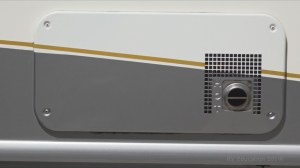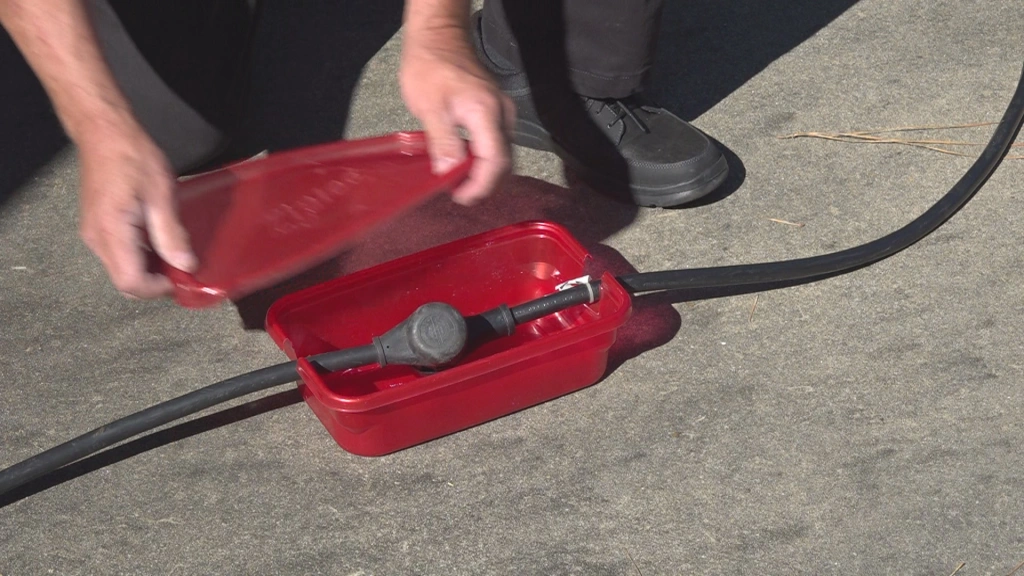RV 101® and RV Education 101®
Mark Polk is a renowned expert in the field of recreational vehicles (RVs) and has been imparting valuable knowledge and expertise through the company he founded, RV Education 101. Established in 1999, RV Education 101 has become a go-to resource for learning how to properly and safely use and maintain your RV via a large selection of online training resources which includes full-feature instant download RV training videos, DVDs, RV E-books, books, newsletters and RV online training videos.
Dedicated to providing comprehensive and easy-to-understand information to RV enthusiasts, both seasoned and newbies alike, RV Education 101 offers a wealth of resources to help RV owners make the most of their experiences on the road. From practical tips on RV maintenance and troubleshooting to in-depth guides on choosing the right RV for your needs, you can trust Mark Polk’s expertise.
RV 101® and RV Education 101® are registered trademarks associated with this industry-leading platform, emphasizing its commitment to delivering top-notch education and guidance. Whether you’re seeking advice on RV safety, maintenance, preventive maintenance, towing techniques, RV checklists or proper campground set up, RV Education 101 has you covered.
With Mark Polk’s extensive background in the RV industry and his passion for sharing knowledge, RV Education 101 continues to empower RV enthusiasts, ensuring they have the confidence and skills to embark on memorable RV adventures. So, whether you’re a full-time RVer or just starting your journey, RV Education 101 is your trusted companion on the road to RVing success.
Our goal is simple, we want to make all of your RV experiences safe, fun and stress-free through our RV education resources.
Thank-you! Mark & Dawn Polk
RV Education 101® http://rveducation101.com/
RV Online Training https://rvonlinetraining.com/
FACEBOOK https://www.facebook.com/rveducation101/
Subscribe to our Free RV 101® Newsletter This month: https://rveducation101.com/272-2/
RV 101® / RV Education 101®
RV 101® Travel Trailer Ultimate Video & E-book Bundle
https://rvonlinetraining.com/p/travel-trailer-ultimate-e-book-and-video-bundle
RV 101® 5th Wheel Ultimate Video & E-book Bundle
https://rvonlinetraining.com/p/rv-101-5th-wheel-ultimate-video-e-book-bundle
RV 101® Motorhome Ultimate Video & E-book Bundle
https://rvonlinetraining.com/p/rv-101-motorhome-ultimate-video-e-book-bundle
Travel Trailer & 5th Wheel Trailer RV Orientation Video Training Course
https://rvonlinetraining.com/p/rv-101-rv-orientation-for-travel-trailer-s-5th-wheel-trailers
Tow Your Travel Trailer Like a Pro Video Training Course
https://rvonlinetraining.com/p/rv-101-trailer-towing-basics
Tow Your 5th Wheel Like a Pro Complete Online Video Training Course
https://rvonlinetraining.com/p/tow-your-5th-wheel-like-a-pro
Motorhome RV Orientation Video Training Course
https://rvonlinetraining.com/p/motorhome-rv-orientation-video-training-course
Drive Your Motorhome Like A Pro Complete Online Video Training Course
https://rvonlinetraining.com/p/drive-your-motorhome-like-a-pro
RV Care & Preventive Maintenance RV DIY® Online Video Training
https://rvonlinetraining.com/p/rv-101-rv-care-preventive-maintenance-online-video-training
RV Essential Items Video Training Course
https://rvonlinetraining.com/p/rv-essential-items
Winterizing and Storing Your RV Video Training Course
https://rvonlinetraining.com/p/winterizing-and-storing-your-rv-video
Travel Trailer 4 Video Bargain Set Plus Free RV Checklist ebook
https://rvonlinetraining.com/p/travel-trailer-video-bundle
5th Wheel 4 Video Bargain Set Plus Free RV Checklist ebook
https://rvonlinetraining.com/p/5th-wheel-video-bundle
Motorhome 4 Video Bargain Set Plus Free RV Checklist ebook
https://rvonlinetraining.com/p/motorhome-video-bundle
A Collection of RV Education 101 E-Books – 9 RV E-BOOK BUNDLE SET
https://rvonlinetraining.com/p/a-collection-of-rv-education-101-e-books-9-rv-e-book-bundle-set
An Introduction to RVs E-book Training Course
https://rvonlinetraining.com/p/an-introduction-to-rvs
Insider’s Guide to Buying an RV E-Book Training Course
https://rvonlinetraining.com/p/insider-s-guide-to-buying-an-rv-downloadable-pdf-e-book
Owning & Operating an RV E-Book Training Course
https://rvonlinetraining.com/p/owning-operating-an-rv
The Original Checklists for RVers E-Book Training Course
https://rvonlinetraining.com/p/the-original-checklist-s-for-rvers
RV Campground Basics E-Book Training Course
https://rvonlinetraining.com/p/rv-campground-basics-e-book-course
RV Safety Features, Tips & Tricks E-book Training Course
https://rvonlinetraining.com/p/rv-safety-features-tips-tricks
RV Care & Maintenance E-Book Training Course
https://rvonlinetraining.com/p/rv-care-maintenance-e-book-course
Winterizing & Storing Your RV E-Book Training Course
https://rvonlinetraining.com/p/winterizing-storing-your-rv-e-book
RV Battery Care & Maintenance E-Book Training Course
https://rvonlinetraining.com/p/rv-battery-care-maintenance
Trailer Towing Basics E-Book Training Course
https://rvonlinetraining.com/p/trailer-towing-basics-e-book

















You must be logged in to post a comment.